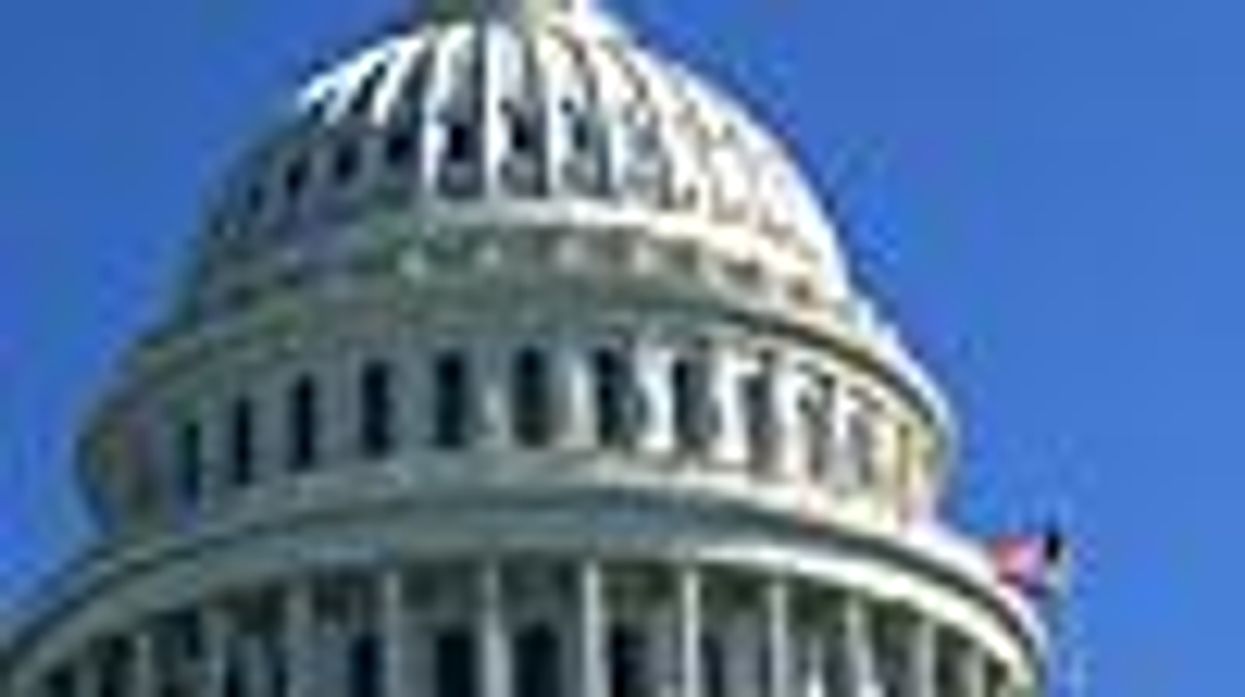Gay rights
advocates expect Congress will soon move closer to approving
a federal ban on job discrimination against gay,
lesbian, bisexual, and transgender workers.
Rep. Barney
Frank, a leading proponent, predicts the ban will win House
approval in coming weeks.
But he and other
gay rights supporters are less optimistic about the
fight ahead in the narrowly divided Senate, where they would
need 60 votes--rather than a simple
majority--to overcome anticipated GOP stall
tactics, such as a filibuster.
''You don't know
if anything can pass the Senate,'' said Frank, one of
two openly gay members of Congress. ''No predictions are
possible about the Senate.''
Conservative
activists too are bracing for a Senate showdown.
''We know it's
going to be very close,'' said Matt Barber, policy
director for cultural issues for Concerned Women for
America.
It is legal for
employers in 31 states to fire someone for being gay, the
ban's supporters said.
The Employment
Non-Discrimination Act would make it illegal for employers
to make decisions about hiring, firing, promoting, or paying
an employee based on sexual orientation or gender
identity. Churches and the military would be exempt.
Federal law bans
job discrimination based on factors such as race,
gender, and religion. Nineteen states and the District of
Columbia have laws against sexual orientation
discrimination.
Ban opponents say
the proposed law could undermine the rights of
people who oppose homosexuality for religious reasons.
''It would force
Christian, Jewish, Muslim business owners to leave their
faith at the workplace door,'' Barber said.
Critics say gay
rights advocates are exaggerating the extent of antigay
discrimination in hopes of boosting their political agenda.
''It is affording
extra protection to a group that has not been
disadvantaged,'' said Tom McClusky, vice president of
government affairs for the Family Research Council, a
socially conservative group.
GOP Senate
leaders are expected to oppose the measure, McClusky said.
President Bush has not said where he stands.
Sen. Edward
Kennedy plans to introduce Senate legislation this month
proposing a discrimination ban.
''It's always
harder to pass bills in the Senate than in the House, but
until we pass this bill, there will be a gaping hole in
federal civil rights legislation,'' said Kennedy,
chairman of the Senate Committee on Health, Education,
Labor, and Pensions.
Joe Solmonese,
president of the Human Rights Campaign, a leading gay
rights group, said the ban's Senate supporters would have
momentum if the House approves the bill.
The Log Cabin
Republicans, a gay Republican group, said the ban is an
easier sell than more controversial measures such as
legalizing same-sex marriage.
''It's a matter
of basic fairness that the overwhelming majority of the
American people and Republicans support,'' said Log Cabin
president Patrick Sammon. ''We're on firmer ground on
this issue, so I think we've got a stronger case to
make to Republican members of Congress.''
Gay rights
supporters were heartened when Democrats won control of
Congress last fall.
A bipartisan bill
was introduced in April by House members Frank, a
Massachusetts Democrat; Christopher Shays, a Connecticut
Republican; Deborah Pryce, an Ohio Republican; and
Tammy Baldwin, a Wisconsin Democrat who is gay. There
are 167 cosponsors, including a handful of
Republicans.
A ban was first
proposed in the House in 1994. Republicans had not
permitted votes on similar measures while they controlled
the House in past years. In the Senate, a bill failed
by one vote in 1996.
Sammon said even
if ban backers fall short of the 60 votes needed to
break procedural roadblocks expected from Senate opponents,
it would mark progress.
''Let's have a
vote, let's have a count and see where we're at,'' Sammon
said. ''If we end up getting 54 or 53 or even 48, we know
where we stand and we can figure out how to get more
votes in the future.''
The House earlier
this year voted to expand hate-crime categories to
include violent attacks against gays and people targeted
because of gender. Similar legislation is pending in
the Senate. The White House has threatened a veto.
(Andrew Miga, AP)





































































Charlie Kirk DID say stoning gay people was the 'perfect law' — and these other heinous quotes